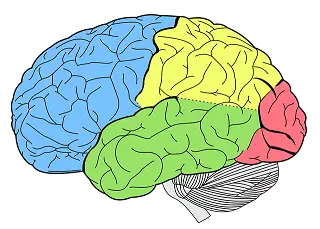| Back to Back Issues Page |
 |
|
English Detective #74 Reading about kids’ developing brains 12-6-16 December 06, 2016 |
Practice English reading with several articles on brain development in children and teens (one also offering listening practice), and then review common vocabulary on the subject.

Much of the vocabulary for these articles, especially names for different areas of the brain, is explained within them. I will just point out a few key general terms that would be good to learn if you don’t know them. Function is the purpose of a part or organ: what it is used for. Structure is its form—the way it’s put together. A functional MRI is magnetic imaging that shows how the brain (or whatever part is being examined) works, rather than just what it looks like. Immature is an adjective that means not fully developed; mature means completely developed or adult. The nouns are immaturity or maturity, as well as maturation (the process of reaching maturity.) To mature is also a verb-- to develop or reach full growth. Pruning usually refers to cutting off branches of a fruit tree or vine to encourage new growth. Here it means removing excess neurons for better brain functioning. Stimulation is causing a response or excitement, especially by activating nerves. Seeing stimulates the visual nerves, hearing things stimulates the auditory nerves. I’m guessing you will have enough stimulation over the holidays without any more newsletters, so I will skip the mid-December issue and send the next one on (or close to) Tuesday January 3, 2017. Happy holidays—and keep practicing English whenever you can! A note if you get gmail: Have you missed any issues of English Detective? if you find English Detective in your Promotions box, you can move it to your Primary box (if you want) by clicking on it and dragging it there, then clicking Yes when asked if you want to always get it in the Primary box. If you are not already getting English Detective, you can subscribe by completing the form here. (It's free!) Also, you can reach me by mail at 1752 Driftwood Drive, El Centro, CA 92243, USA. |
| Back to Back Issues Page |